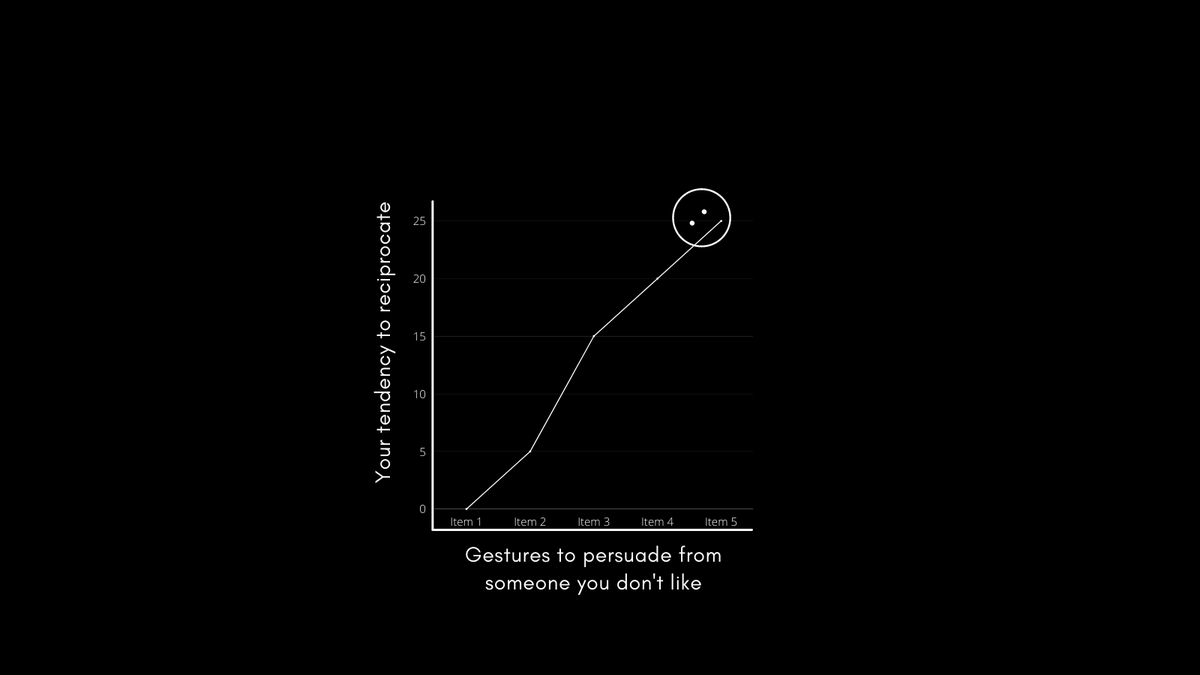This Sunday, our OP Di’s @nipunnyy, @an_napurna organized a fun and interactive team based activity wherein we had to read, discuss and pictorially present one chapter of the book “The Art of Thinking Clearly” in 25 minutes (talk about time management  )
)
A thread
 )
) A thread

Here is a compilation of the creative (and weird?) visuals that we came up with 



Group 1
We learnt: One gets a sense of drowning in debt when they take without giving, after which they feel the urge to reciprocate.
This happens even if we aren't fond of the other person.
Below is the correlation between our tendencies to reciprocate others' kind gestures.
We learnt: One gets a sense of drowning in debt when they take without giving, after which they feel the urge to reciprocate.
This happens even if we aren't fond of the other person.
Below is the correlation between our tendencies to reciprocate others' kind gestures.
Group 2
Hindsight Bias- can be aptly described as the “I told you so” phenomenon: In retrospect, everything seems clear and inevitable. “You can’t connect the dots looking forward; you can only connect them looking backward.”
-Steve Jobs https://bit.ly/hindsight-bias-slides
Hindsight Bias- can be aptly described as the “I told you so” phenomenon: In retrospect, everything seems clear and inevitable. “You can’t connect the dots looking forward; you can only connect them looking backward.”
-Steve Jobs https://bit.ly/hindsight-bias-slides
Group 3
Scarcity Error: We all are attracted to things that are low in supply.
Clubhouse gained momentum because of its iOS invite only status. It is all about our fear of missing out. So, when you see the 'only one left in stock' alert, think twice before placing your order.
Scarcity Error: We all are attracted to things that are low in supply.
Clubhouse gained momentum because of its iOS invite only status. It is all about our fear of missing out. So, when you see the 'only one left in stock' alert, think twice before placing your order.
Group 4
Outcome Bias-we often take decisions based on the result rather than the process.
You can only judge a person if you know about their field, and then monitor their execution. So, the next time when you don't get your desired result, reflect on your process and errors.
Outcome Bias-we often take decisions based on the result rather than the process.
You can only judge a person if you know about their field, and then monitor their execution. So, the next time when you don't get your desired result, reflect on your process and errors.
The above thread is written by our OP's @SadhwaniTanya and @urvi_jain8!
Here's to capturing more Sundays in threads!
Here's to capturing more Sundays in threads!


 Read on Twitter
Read on Twitter






